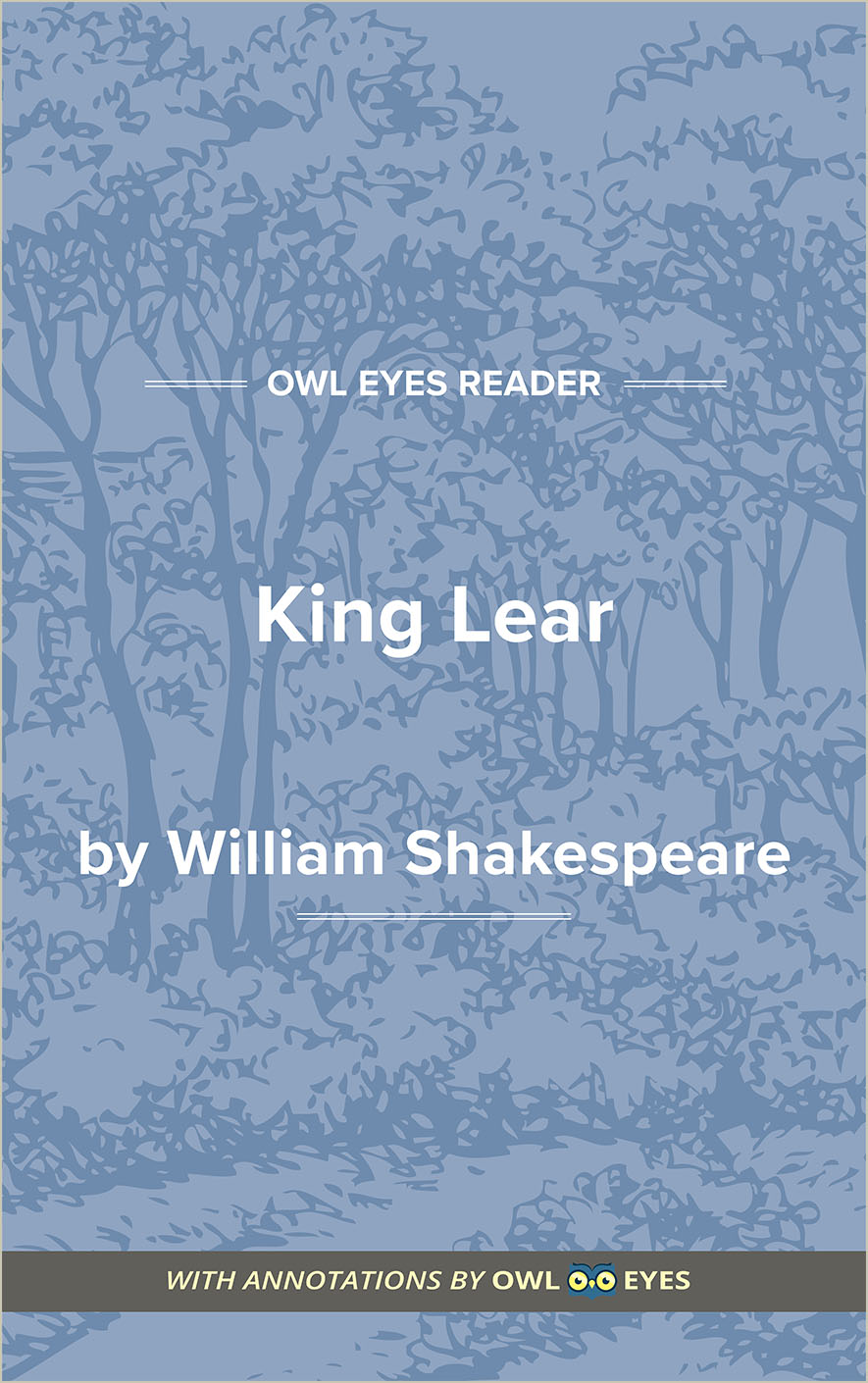Analysis Pages
Irony in King Lear
Irony Examples in King Lear:
Act III - Scene III
🔒"There is some strange thing toward, Edmund; pray you, be careful...." See in text (Act III - Scene III)
Act III - Scene IV
🔒"ah, that good Kent!..." See in text (Act III - Scene IV)
Act III - Scene V
🔒"How malicious is my fortune, that I must repent to be just! ..." See in text (Act III - Scene V)
Act IV - Scene I
🔒"my son(35) Came then into my mind;..." See in text (Act IV - Scene I)
Act IV - Scene V
🔒"Edmund, I think, is gone, In pity of his misery, to dispatch His nighted life:..." See in text (Act IV - Scene V)

